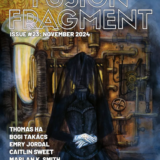Greetings!
This is the Science Fiction audio section of the Amazing Stories Blog section. In it you will see a great deal of interesting and unique information.
“But what,” you ask, “is Science Fiction audio?”
Well, thank you for asking that question!
Off the top of the head for most people, this would probably mean soundtracks. Many will come up with audiobooks. Some smaller number will think of Radio Drama, thinking of Orson Well’s version of “War of the Worlds” that caused so much panic that Halloween night. And a few, probably a small number, will think of original music by bands such as Rush, Pink Floyd or Hawkwind.
To be sure, those are going to be talked about in this column, but there is a much broader field to be examined! For example, Radio Drama is a rich field, but did you know that there are also many audio plays that have been written and produced but not aimed at a radio market? The field of Radio Drama is still ongoing as well, although it has migrated to the public broadcasters and away from commercial broadcasting. A good example of this are the Doctor Who audio plays that the BBC periodically puts out.
But if you boil audio drama down to it’s roots, they go back to the single storyteller, an art form that has been seeing a revival among Science Fiction and Fantasy writers like Marie Bilodeau, who is a member of a storytelling group The Kymeras. They have performed at venues ranging from small bars to the prestigious National Art Centre of Canada in Canada’s capital, Ottawa. In many ways, you can think of fantastic stories told around the cooking fires of ancient humans as being the oldest form of Science Fiction & Fantasy.
Of course, the Internet has touched this ancient art as well, and created what is know as “podfic”. This is people who record their reading of fiction, and then post it on the internet for anyone to download. This is a bit controversial because of minefield known as “publishing rights”, and it gets even more convoluted as most podfic people prefer to read fanfiction, itself a controversial subject. And yes, there is a video branch know, of course, as “vidfic”.
Science Fiction and Technology go together like peanut butter and bread. And in the field of music, that is true as well. In fact, the soundtrack to the film Forbidden Planet is an excellent example of this. Many people think that the instrument used on this soundtrack was a Theremin….but it wasn’t. In fact, it wasn’t any one instrument at all. The sound track was created literally from scratch…Louis and Bebe Barron not only composed the music, but built from scratch sound producing electronic circuits which they then fed through various effects like reverb, delay, along with “tape manipulation”. The soundtrack was built as much as it was composed!
Like many people of my generation, the quintessential Science Fiction soundtrack is John William’s symphonic score to Star Wars. I’ve owned that soundtrack in many different formats, including 8-Track Tape! We will look at many of the classic soundtracks to SF & F films like Star Wars as well as current ones like Howard Shore’s music for “The Hobbit: An Unexpected Journey”. We will also delve into TV soundtracks such as ex Tangerine Dream member Christopher Franke’s music for Babylon 5 which mixes symphonic with synthesizers to produce B5’s unique sonic textures.
Of course, we will cover audio books. I’m very partial to the audio book of Neal Stephenson’s Anathem, for example. I know many people who listen to audio books while travelling, or if they are sight challenged. These works can range from a simple reading to essentially an audio play. There are pros and cons for each, and we will touch upon that in future columns.
We will also talk about the technology of audio, as I have a background in music and recording. As part of that we will talk about podcasts, how you can make your own and tips on how to make your podcast or other recording sound more professional.
If you have an idea for a column, or have a question, please feel free to leave it here, or contact us either through my email address, or the general one for the magazine/website.
Thank you for your time










